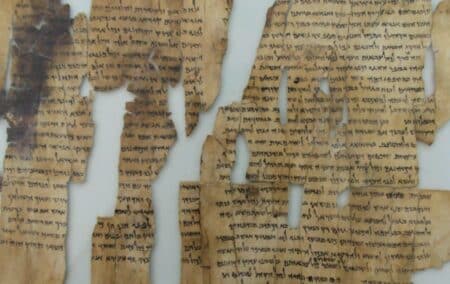Artificial Intelligence (AI) has shown that two scribes wrote part of the mysterious ancient Dead Sea Scrolls, according to the BBC.
It says researchers subjected the longest text, known as the Great Isaiah Scroll, to AI tests and found that probably two unknown individuals had copied down the words using near-identical handwriting.
According to the report, researchers at the University of Groningen in the Netherlands examined the Isaiah scroll using ‘cutting edge’ pattern recognition and AI. They analysed a single Hebrew letter, aleph, which appears more than 5 000 times in the scroll.
The researchers, scholars Mladen Popovic, Maruf Dhali and Lambert Schomaker, are quoted as saying that the ‘ancient ink traces relate directly to a person’s muscle movement and are person-specific’. This enabled them to deduce that more than one scribe was involved.
‘[The] likely scenario is [one of] two different scribes working closely together, trying to keep the same style of writing yet revealing themselves, their individuality.’
The scrolls, which include the oldest known version of the Bible, have been a source of fascination since their discovery some 70 years ago. The first sets were found by a Bedouin in a cave at Qumran near the Dead Sea in what is now the Israeli-occupied West Bank.
They contain manuscripts, mostly written in Hebrew as well as Aramaic and Greek, and are believed to date from about the Third Century BC.
[Image: Ken and Nyetta – https://www.flickr.com/photos/71279764@N00/5249145754/, CC BY 2.0, https://commons.wikimedia.org/w/index.php?curid=35682473]

